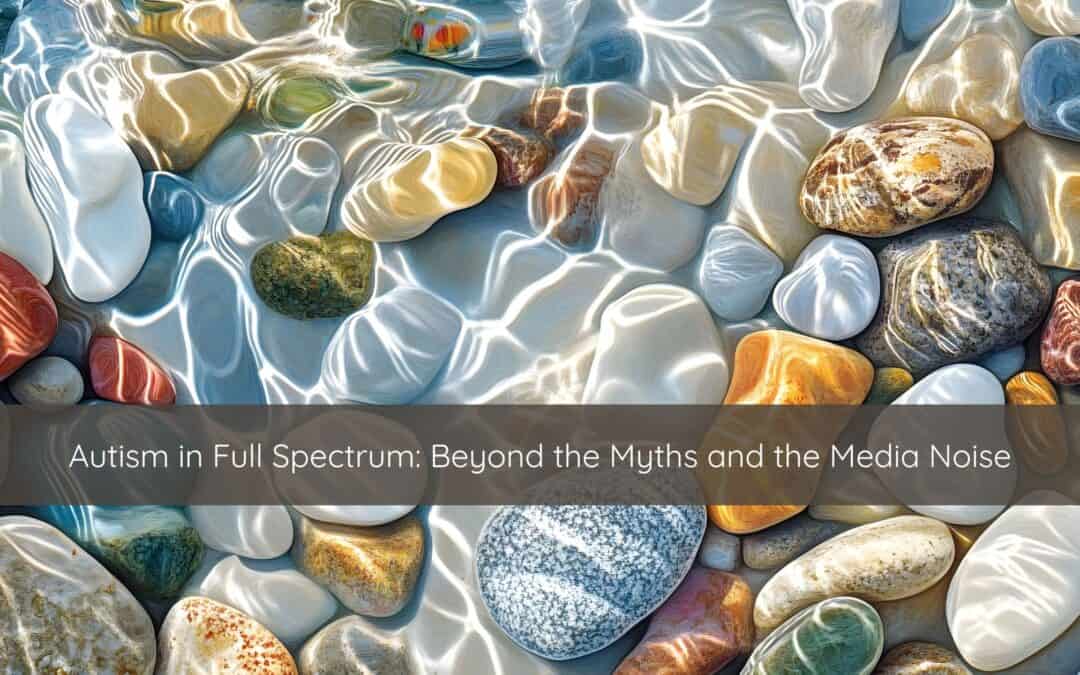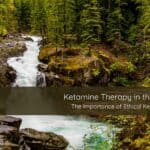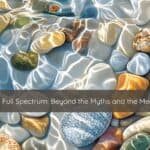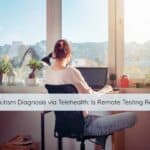The Noise of Disinformation and the Human Cost
 In the immediate aftermath of yet another profoundly unscientific and harmful declaration from the United States Department of Health and Human Services about Autism Spectrum Disorder, my phone was buzzing relentlessly. News alerts, questions from family, sarcastic memes from colleagues exhausted by more disinformation, and in the middle of it texts from a friend with an autistic son, her light tone underlying real pain, saying, “He just likes to line up his favorite things and make dolphin squeals. Who is he hurting?” No one. But people with autism and those who love them are being hurt by both the casual disregard of the cumulative wealth of collective human knowledge we have, based on decades of work and research, as well as a culture that wants information simple, black and white, and presented in 30 second snippets.
In the immediate aftermath of yet another profoundly unscientific and harmful declaration from the United States Department of Health and Human Services about Autism Spectrum Disorder, my phone was buzzing relentlessly. News alerts, questions from family, sarcastic memes from colleagues exhausted by more disinformation, and in the middle of it texts from a friend with an autistic son, her light tone underlying real pain, saying, “He just likes to line up his favorite things and make dolphin squeals. Who is he hurting?” No one. But people with autism and those who love them are being hurt by both the casual disregard of the cumulative wealth of collective human knowledge we have, based on decades of work and research, as well as a culture that wants information simple, black and white, and presented in 30 second snippets.
From “Epidemic” to Recognition: Understanding Autism’s Broader Definition
Not so long ago, Autism was rigidly defined, requiring a very early onset (prior to age 3), and severe cognitive, interpersonal, emotional, and behavioural problems. When the diagnostic criteria was expanded to include what was then referred to as Asperger’s Syndrome, later revised again as Autism Spectrum Disorder, diagnoses dramatically increased. This wasn’t an epidemic, it was recognition. Autism was no longer only being diagnosed in children who were non speaking, with severe cognitive limitations, it was now being recognized for what it is – a neurotype once hidden beneath terms from eccentric to emotionally distant, from fairy changelings to lost causes.
A Shift Toward Acceptance and Neurodiversity

There has been a massive movement toward acceptance of this neurotype, to reframe the struggles of the autistic brain as a difference rather than a defect. Inclusion is celebrated. Neurodiversity is championed. This has made a huge difference in the lives of so many autistic people and their loved ones. Supports now exist where there were once only barriers, and entire communities have formed around advocacy and pride. People with autism can and have made tremendous contributions to every aspect of humanity, and the differences are something to be celebrated and supported.
Holding Complexity: Celebration and Challenge Can Coexist
And yet, as with all complex truths, nuance often gets lost. Autism can be both a difference to celebrate and a condition that profoundly challenges regulation, communication, and daily living. Both realities are true. There are families who live in the trenches of dysregulation, desperate for understanding and effective support, not because they reject their child’s neurotype, but because love and exhaustion often coexist. Our culture struggles to hold this kind of duality. We lurch toward absolutes: celebration or tragedy, cure or acceptance. But complexity is the only honest position.
The Real Harm: Fearmongering and False Certainty
There are no villains here — only the charlatans who exploit pain and confusion, demonizing an entire population and selling certainty where none exists. They weaponize fear, profit from pain, and set the entire conversation back decades. Autism is not a moral failure, a parenting error, or a political talking point. It is a neurotype shaped by a complex interplay of genetics and environment, and it demands the same respect, curiosity, and compassion as any other expression of the human mind.
Standing for Science, Humanity, and the Full Spectrum of Truth
Ethically, I cannot remain silent in the face of dangerous disinformation, nor can I speak about autism without honoring its depth and diversity. Autism is both beautiful and brutal. Autistic people and those who love them deserve support, compassion, inclusion, celebration, and, when desired, treatments grounded in the collective wisdom of our global scientific community; the one we stand on now and the towering shoulders of those who came before us.
Interested in Learning more about Autism and Autism Support?
Contact The Catalyst Center to learn more.
Call schedule a free introductory call or contact us.




